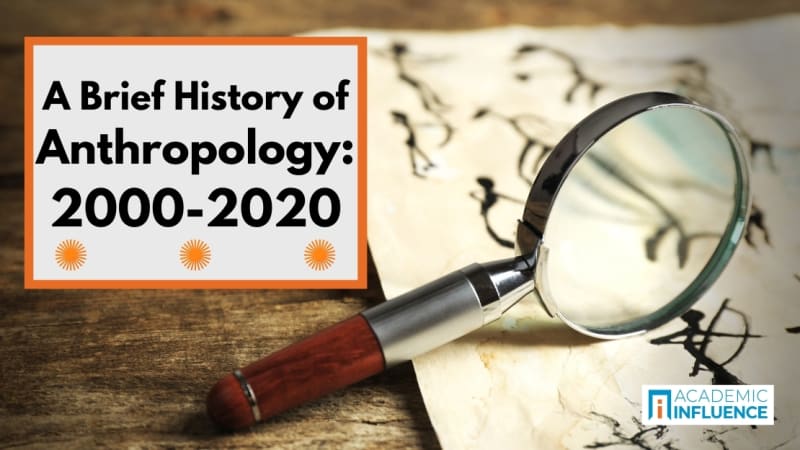A Brief History of Anthropology: 2000-2020

We explore the field of anthropology from 2000-2020.
The anthropology discipline began as an effort by early historian Herodotus to account for the military differences between his mother country of Greece and the Persian Empire in the 4th century B.C. By the 21st century, leaders in the field were immersed in the process of separating anthropology from its “Euro-centric” origins. This included distancing itself from the framework of social Darwinism, and thus reducing the emphasis on cultural fitness and evolution that historically permeated thinking in the field.
As anthropology graduated through phases of postmodernism and deconstructivism, the field also came to encompass impressive specialization in a number of diverse scientific and social fields. For instance, applied anthropologists help cultural groups, governments, businesses and organizations solve problems that typically require cross-cultural insights and expertise. An applied anthropologist might help a business understand working culture in other countries so that it can thrive internationally, with satellite offices in foreign lands. Or a cultural anthropologist might help new democracies in troubled regions navigate cultural and historical challenges.
Interested in exploring the field of anthropology as an undergraduate? Find out How to Major in Anthropology.
Applied anthropology has its roots in the decades after World War II, when many countries gained newfound freedom after the defeat of the Axis powers, and turned to western democratic ideas to forge new governments. But increasingly during the 21st century, applied anthropologists have seen growing demand and specialization for their cross-cultural expertise in contending with a range of problems facing the modern world. No doubt, the growth of the Internet and the erosion of many practical borders to cross-cultural engagement has opened up new questions, challenges and opportunities for anthropologists studying the modern world.
Applied anthropology has also been embraced in legal and criminal contexts, where for instance, examiners attempting to investigate the remains of a genocide might recruit applied anthropologists to makes sense of mass graves and other sites marked by such distinctly human cultural footprints. Archaeology and archaeological anthropology have also played an increasingly noteworthy role in courtroom cases involving the rights of indigenous peoples, who might have been threatened by government or corporate interests in land they believed was part of their own heritage. Indeed, whereas traditional anthropology sought to study and explain different cultures, 21st century anthropology has often been enlisted as an aid and a guide to members of marginalized cultures in recovering their past. To this end, anthropology also increasingly shifted in the 21st century to a focus on causes and consequences of injustice, violence, and poverty around the world.
Interested in earning an advanced degree in anthropology? Find out what you can do with a Master’s Degree in Anthropology?
Thus anthropology, while still fundamentally a study of culture, has also emerged as a powerful instrument for diverse organizations and cultural groups around the world who seek to recover and preserve their heritage against the historical forces of colonialism and the continuation of Western hegemony. The focus of the field in the 21st century has shifted, one might say, from early grand theories of culture–its nature and origins–to many sub-fields which see culture as particular to cultural groups and often requiring meaningful scientific, historical and ethical examination. Truly, we should view anthropology as an important discipline in a culturally diverse and deeply connected world where the power of connection can also threaten and challenge the identities of different cultures. In other words, the world needs thoughtful, passionate and talented anthropologists now more than ever.
Find out which influencers have most contributed to advancing the field of anthropology over the last two decades with a look at The Most influential People in Anthropology, for the years 2000–2020.
And to find out which schools are driving the anthropology field forward today, check out The Most Influential Schools in Anthropology, for the years 2000–2020.
Visit our Study Guide Headquarters for tips, tools, and much more.
See our Resources Guide for much more on studying, starting your job search, and more.